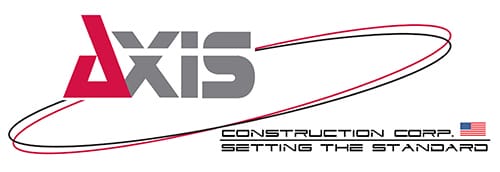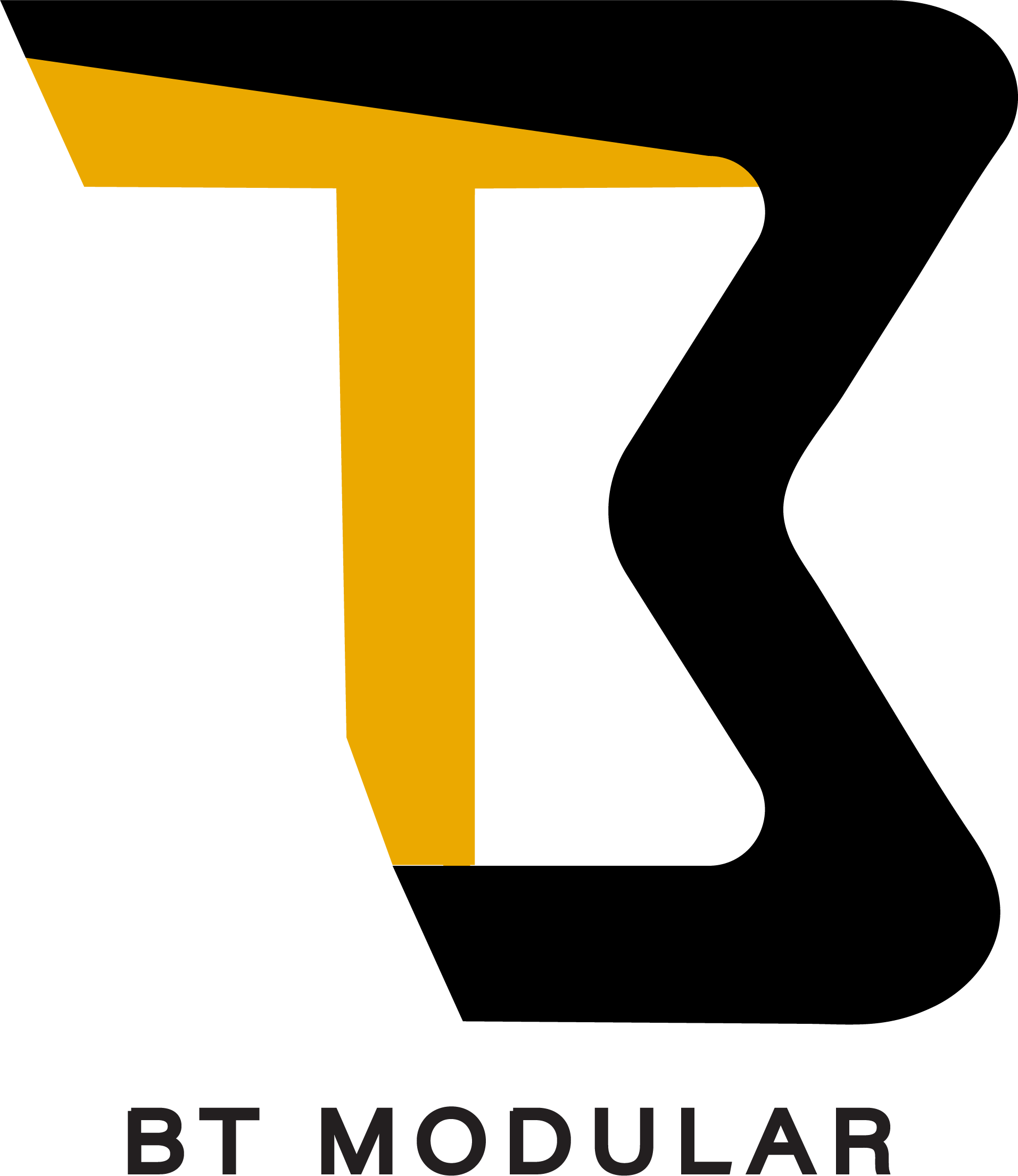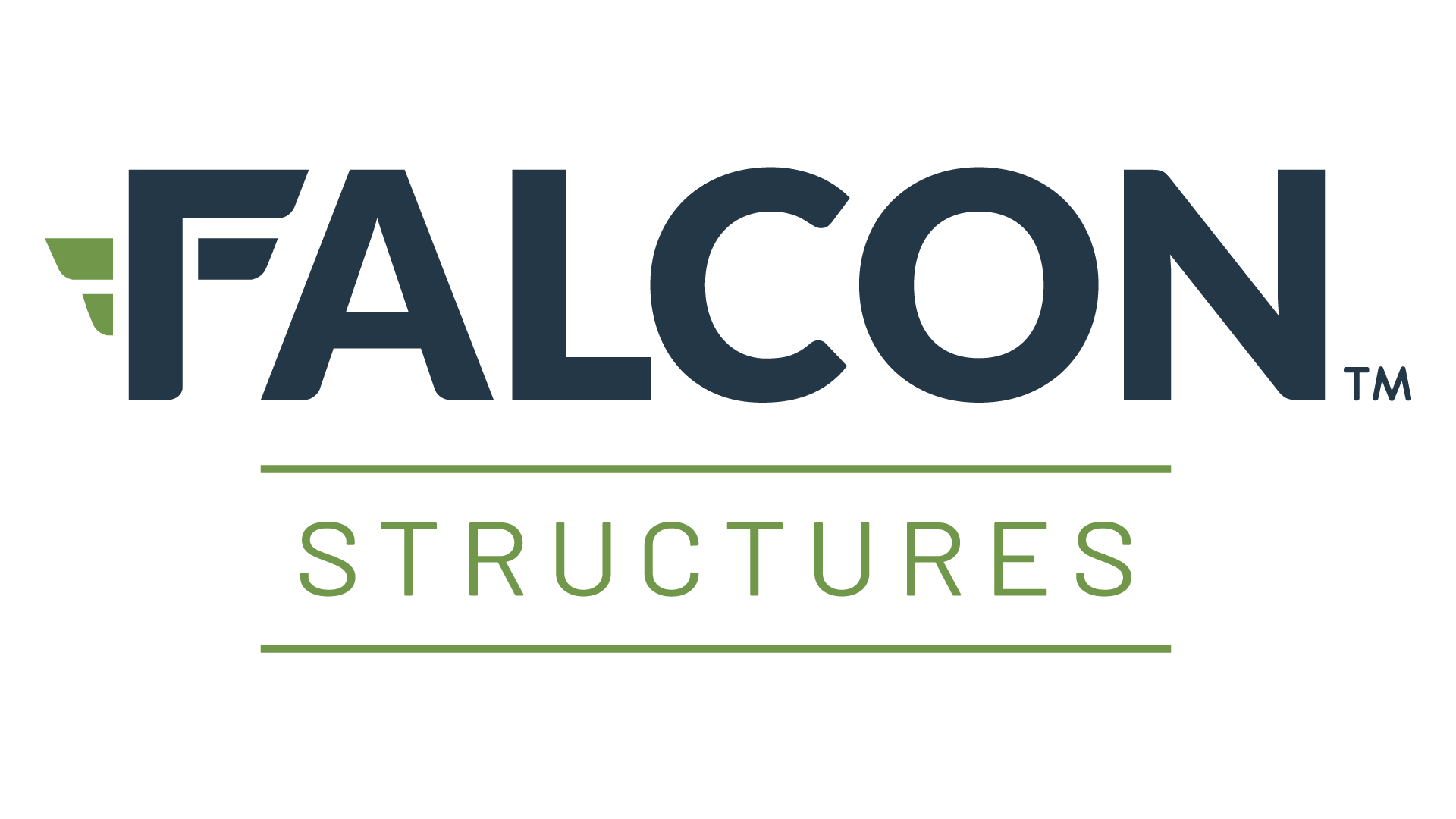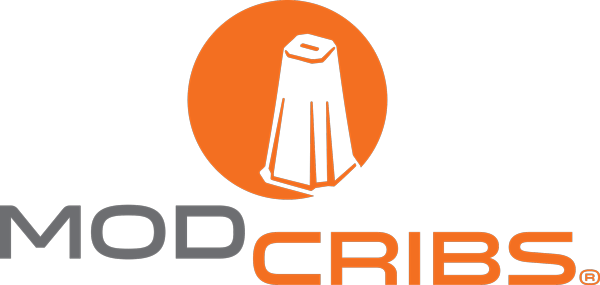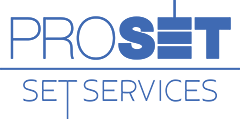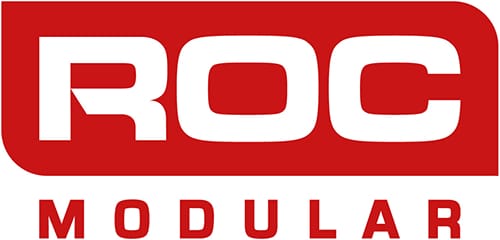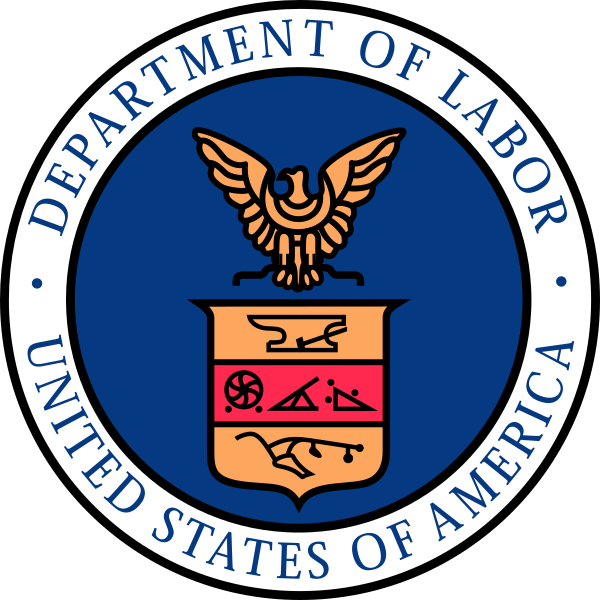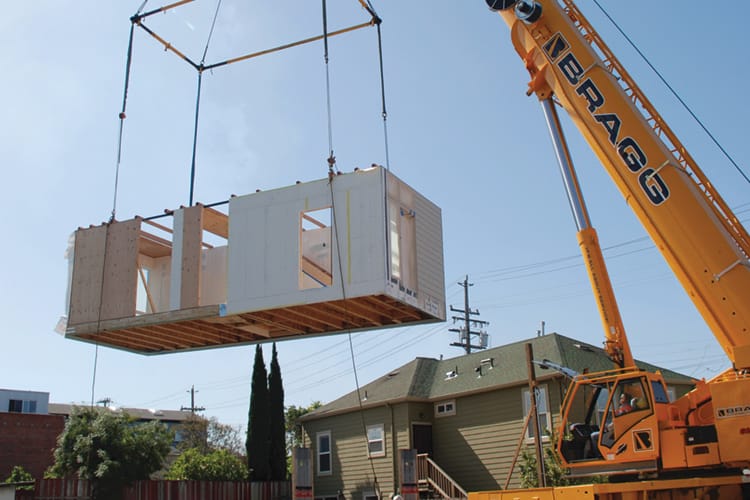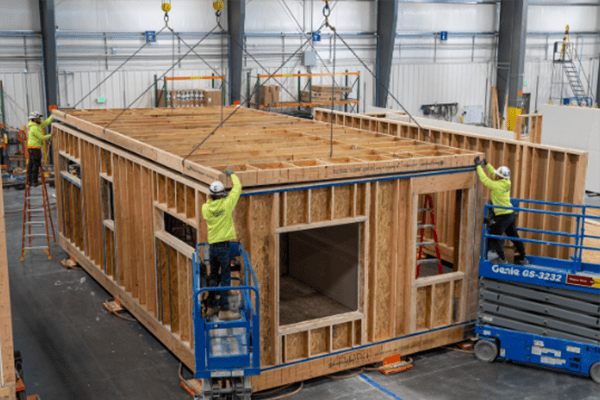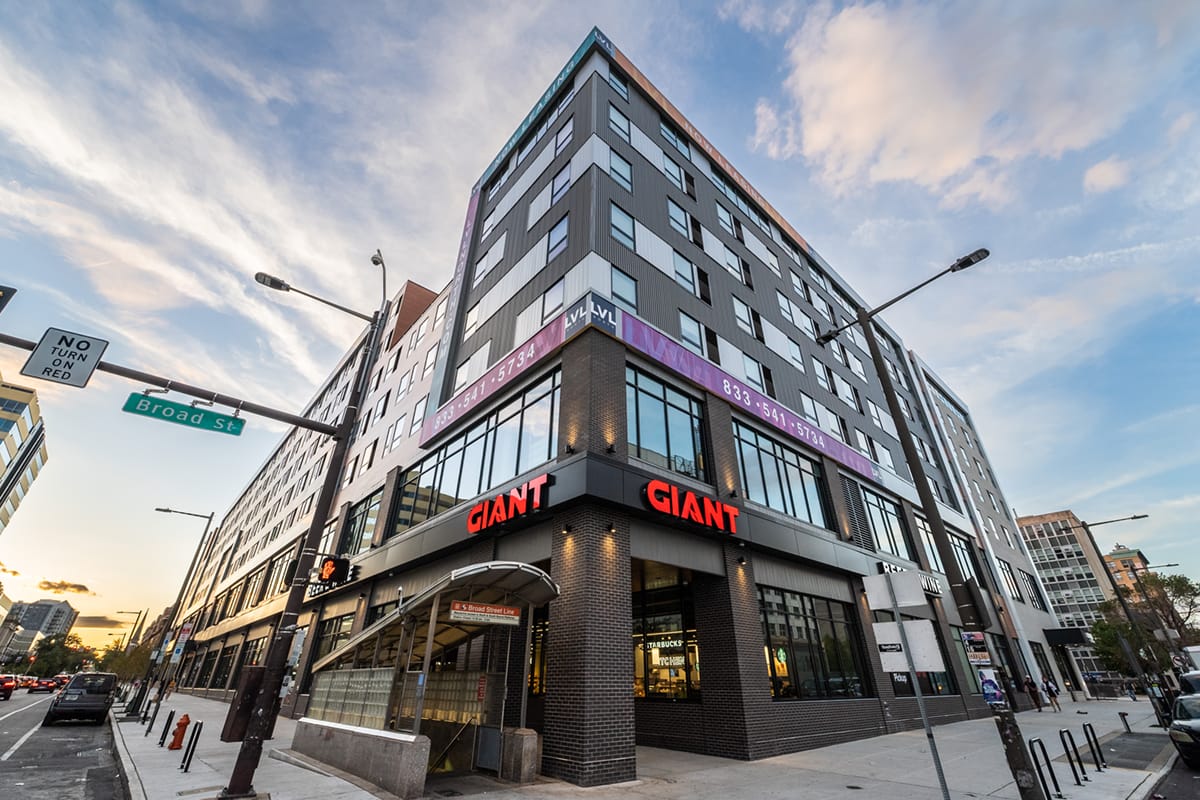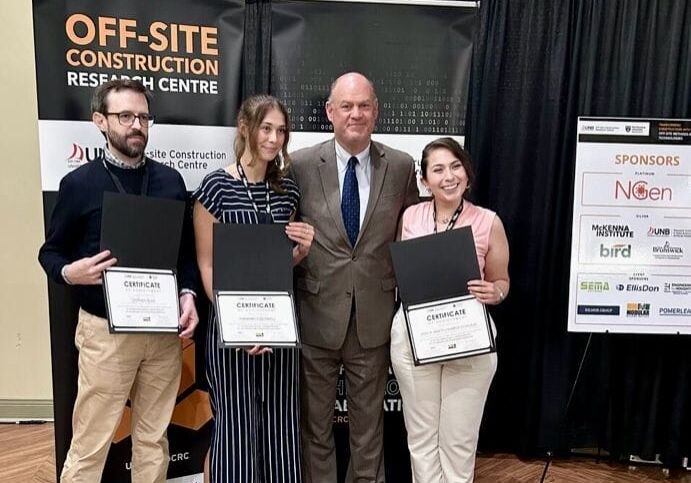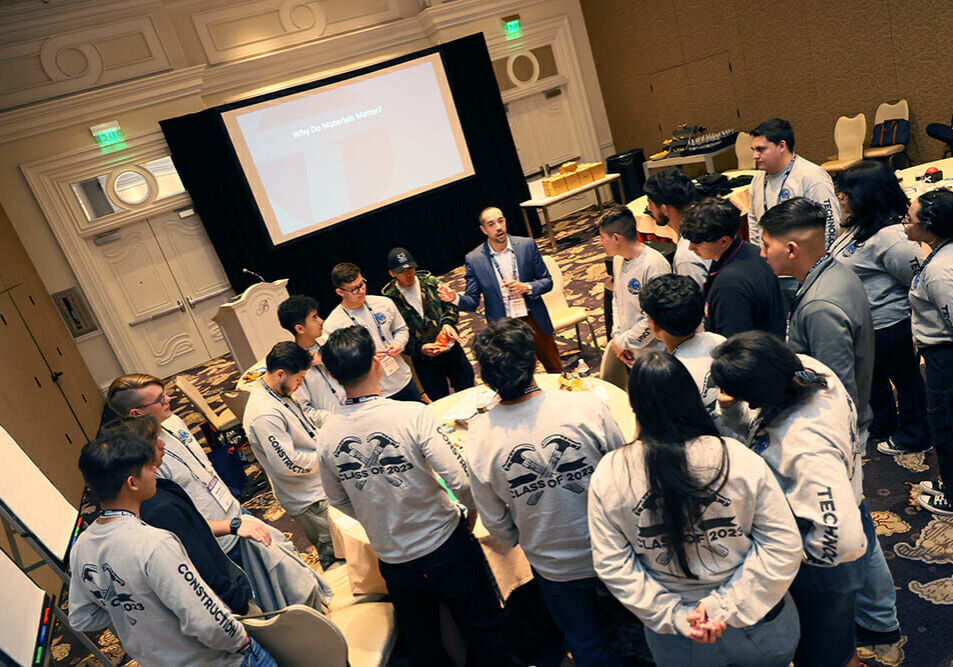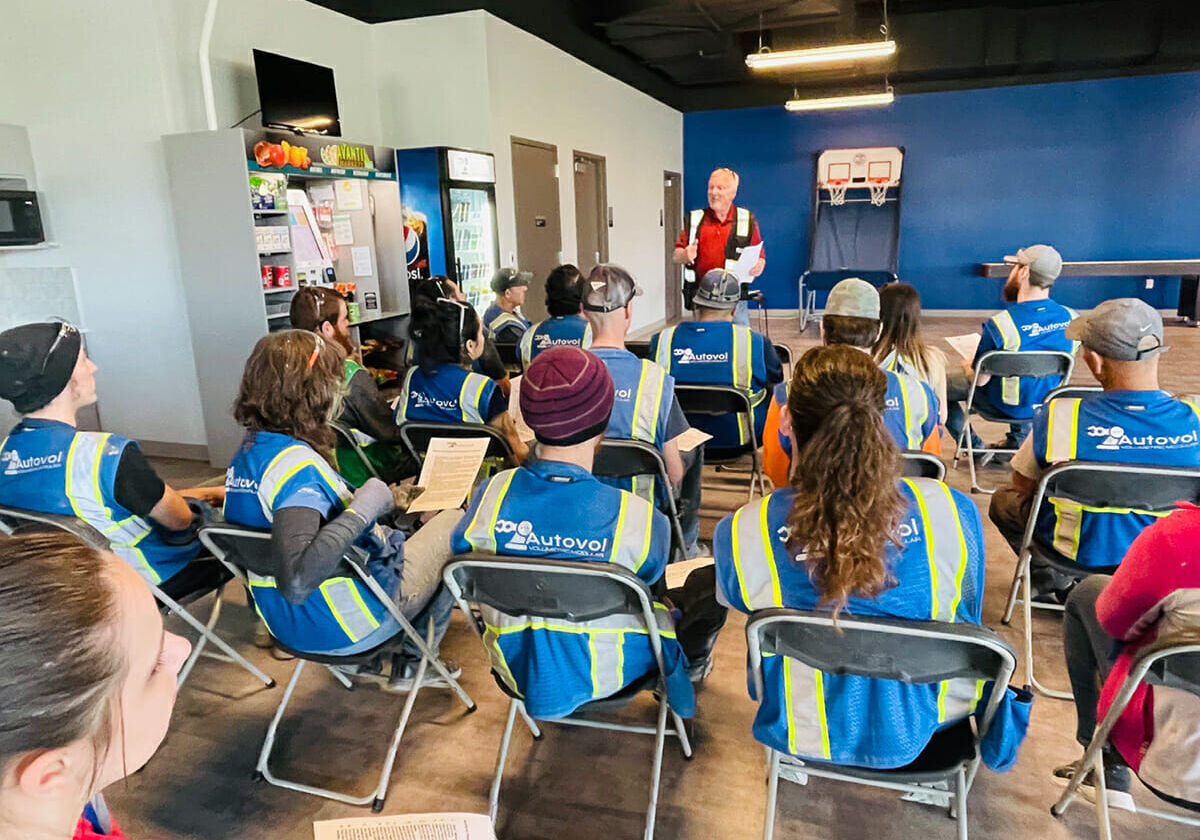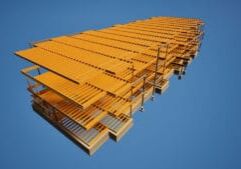Modular Advocacy Program
The Modular Advocacy Program (“MAP”) is MBI's multiyear, multi-million dollar campaign to spur investment in, and promote the greater adoption of, the commercial modular construction industry.
In order to meet the growing needs of its members and the greater modular construction industry, MBI's MAP program will drive industry growth in the following areas:
- Influencing government legislation, regulations, procurement, programs, and codes.
- Creating new business opportunities for the industry.
- Expanding outreach efforts to developers, architects, and code officials.
- Attracting new employees to the industry, including non-traditional workers.
MBI, leveraging its growing international membership, plans to fund this program through a variety of initiatives.

Funding the Modular Industry's Most Important Initiative
Your company can support MBI's Modular Advocacy Program in three ways:
Sponsoring the MAP
Annual sponsorships for the MAP program are available for $1,000. If you're not buying Seals, this is an ideal way to show your support of MBI and contribute to MAP funding.
With your annual sponsorship, your company will receive:
- sponsor recognition and logo inclusion in every MBI printed piece (magazines, annual reports, event brochures),
- a dedicated eblast thanking each sponsor, AND
- a special thanks at the next World of Modular annual conference, including logo inclusion in the opening presentation.
MBI Seals
MBI Seals are 4-inch square stickers that are meant to be affixed inside each module that MBI member manufacturers produce. Each MBI Seal costs $20. These costs are intended to passed along to your customers, which means a net-zero cost to you.
Manufacturers - Order and affix an MBI Seal inside each module you manufacture.
Architects, Contractors, & Developers - Spec the MBI Seal on your future projects.
Fleet Owners – Ensure all new and existing units have the MBI Seal.
Voluntary Donations
If Seals and MAP sponsorship don't match your company's current objectives, support the MAP by making a voluntary donation in any amount.
In combination with the revenues from Seals and sponsorships, these donations will be used to grow and protect the commercial modular construction industry through government affairs advocacy, business development, expanding MBI's membership, and industry workforce development.
SPONSORED BY

"BT Modular is proud to support MBI's Modular Advocacy Program and contribute to the continued growth of the modular industry. As a supplier of doors and hardware, we want to show support to the customers who have supported us over the years. Within the last 10+ years that I have been involved, I’ve had the privilege of watching this industry evolve and expand. It is exciting to see industry gain momentum and we are committed to playing our part in advancing its future. I encourage all suppliers to donate to this cause and support our friends in the industry."
Cortney Milbourne, VP of BT Modular
Advocating for Commercial Modular Construction
Led by the Modular Building Institute's government affairs director Jon Hannah-Spacagna, MBI's team of government affairs professionals is diverse, experienced, and well-connected on both the state and federal levels.
Chaired by Stephen Shang, CEO of Falcon Structures, MBI boasts a working committee of dozens of modular industry professionals that meets and advises MBI on existing legislative barriers, emerging issues, and opportunities to expand the adoption of modular and offsite construction.
Significant Wins for the Industry
In only the past year, MBI has contributed (entirely or in part) to a string of noteworthy victories for the modular building industry, including:
- Colorado is dispersing $40 million in grants to modular manufacturers to support affordable housing construction;
- Oregon passed a $20 million bill to support the use of modular to build affordable housing; I’ve been appointed to their finance committee to disperse the funds
- The International Code Council finalized and published its new MEP-focused building standard, MBI/ICC ANSI 1210;
- The Canadian Mortgage Housing Corporation continues to fund its Rapid Housing Initiative with another $1.5 billion in funding, which includes specific support for modular construction;
- The National Nuclear Security Administration is finalizing recommendations to the US Department of Energy to utilize modular for over $10.5 billion in future projects;
- A New York state bill that would have required NYC-licensed workers to oversee work in modular factories was defeated for the fourth consecutive year;
- Washington state fully adopted the use of third-party inspection agencies for plan reviews;
- Virginia became the first state to formally adopt MBI/ICC ANSI 1200/1205; and
- Utah has just voted in favor of creating a state modular program.
Your company's support of the MAP is crucial to MBI's ability to achieve these results.
Modular Building Institute Defeats Davis-Bacon Act Expansion
The Modular Building Institute, with the support of its members, has defeated the US. Dept. of Labor's Davos-Bacon Act expansion, and the stakes for the modular construction industry could not have been higher.
Creating New Business Opportunites
MBI works with governmental and non-governmental organizations around the world to make connections and highlight the abilities of commercial modular construction. In doing so, MBI routinely engages, supports, and advises state, provincial, and municipal agencies to create opportunities for its members to contribute to well-funded and much-needed modular construction projects. These efforts would not be possible without MBI's involvement, and MBI's involvement wouldn't be possible without support from the industry itself.
Recent efforts by MBI to create opportunities for the industry have included:
FEMA Announces Hawaii Housing Plan Using Modular Construction
The plan marks is a major change for FEMA as it begins to incorporate modular housing into its disaster-relief options.
ICC/MBI Standards 1200 & 1205 Provide Foundation for Utah's First-Ever State Modular Program
Utah becomes the second state in the country, following Virginia, to fully adopt ICC/MBI standards 1200 and 1205.
Colorado Announces Modular Housing Loans to Create Up to 4,755 More Housing Units Per Year
Gov. Jared Polis just announced funding to support the growth of eight modular housing manufacturers across Colorado.
Broadening MBI's Membership with Architects and Engineers
As public and private organizations continue to turn toward modular buildings for the many benefits they provide, architects and engineers are being increasingly called upon to design buildings that will be built using prefabricated or modular construction. As the world's largest trade association for the commercial modular construction industry, MBI is reaching out to design professionals to both bolster its membership and provide these design professionals with the promotion, resources, and connections they need to succeed in modular design and construction.
Recent design-focused resources have included:
From a Basement Office to a Team of Modular Experts
“The modular offsite construction project type actually found EVstudio because of our company’s integrated multidisciplinary approach,” Dalvit said, which led the company to develop a focused design studio around that project type.
Modular Architecture: Thinking Outside of the Box with Sara.Ann Logan
It might seem strange to use the term “out of the box thinking” in the modular construction world, but when you’re talking about Sara.Ann Logan, the VP of design at Volumetric Building Companies, the phrase fits like a glove.
Is Modular + Scattered Sites a Solution to the Affordable Housing Crisis?
By utilizing modular construction, architect Dean Dovolis and his team were able to design houses that fit into their respective neighborhoods while keeping construction costs to a minimum.
Developing Tomorrow's Workforce
The Modular Building Institute (MBI) developed the MBI Learning Center with the goal of introducing learners to the commercial side of modular construction – an innovative and exciting modern method of construction.
The first course, Introduction to Commercial Modular Construction, discusses the modular building process compared to traditional site-built construction and is designed to help learners understand the terminology and concepts of modular building, including client needs, design, fabrication, transportation, and installation.
Other recent workforce development efforts and coverage have included:
MBI-Sponsored Design Competitions
These annual competitions—hosted by the University of New Brunswick's Off-Site Research Centre and presented by the Modular Building Institute (MBI)—showcase student design innovation in modular, prefabricated, panelized, and other types of off-site construction.
Welcoming the Industry’s Rising Stars to the World of Modular
Each year, MBI hosts dozens of high school students from regional trade-focused schools at its World of Modular conference. Students take part in dedicated workshops, meet with exhibiting companies, and receive instruction from industry leaders.
Is Your Company a “Destination Employer?” These Four Are
Autovol, Momentum Innovation Group, Signature Building Systems, and Modern Building Systems have been working hard to attract workers, particularly young workers, to their companies through a combination of culture and actively reaching out to students to make them aware of opportunities.
MBI Needs You to Support the MAP
Full member support of the Modular Advocacy Program will be critical to MBI's goals in 2024 and beyond. And if your company has not yet joined MBI, now is the perfect time. With more resources than ever, the Modular Building Institute is helping to build the future of modular construction. Join us!
More from the Modular Building Institute
Oregon’s Prevailing Wage Proposal: A Wake-Up Call for Modular Construction
In early February, 2024, the Massachusetts Board of Building Regulations and Standards (BBRS) released its proposed 10th Edition building codes. This draft included several amendments targeting modular construction that would have created an extremely difficult environment for the entire modular industry and could have eliminated the industry entirely in the state.
Behind the Design of Bethany Senior Terraces, NYC’s First Modular Passive House Senior Housing Project
As more developers seek to meet new regulations for energy efficiency, the team at Murray Engineering has set a new record. With the Bethany Senior Terraces project, Murray Engineering has helped to develop NYC’s first modular structure that fully encompasses passive house principles — introducing a new era of energy efficiency in the energy-conscious city that never sleeps.
How LAMOD is Using Modular to Address Inefficiency, Sustainability, and the Future of Construction
As developers, designers, and contractors seek to understand the evolving needs of the modular industry, no one is as well-versed in the benefits of going modular as Mārcis Kreičmanis. As the co-founder and CBDO of LAMOD in Riga, Latvia, Mārcis has made it his ultimate goal to address the inefficiencies of traditional construction.
From Furniture Builder to ‘Activist Architect’: Stuart Emmons’ Unique Journey
Stuart Emmons was fascinated by buildings at a young age. He remembers building sand cities with his brother during trips to the Jersey shore. His father gave him his first drawing table at the age of ten. Today, he is an experienced architect who received his FAIA in June 2025. The road he took is unique, to say the least.
Forge Craft Architecture + Design: Codes, Contracts, and Intellectual Property
Founding Principal and Director of Modular Practice for Forge Craft Architecture + Design, Rommel Sulit, discusses the implications of codes, contracts, and intellectual property on
modular construction.
Eisa Lee, the “Bilingual” Architect
Now as the founder of XL
Architecture and Modular Design in Ontario, Canada, she applies not just her education as a traditional architect but an entire holistic view on modular design. It’s this expansive view that guides her work on being a true partner that bridges the gap between architects and modular factories as they collaborate on the design process.
Tamarack Grove Engineering: Designing for the Modular Sector
The role of a structural engineer is crucial to the success of a modular project, from initial analysis to construction administration. Tamarack Grove offers structural engineering services — project analysis, plan creation, design creation, and construction administration — for commercial, manufacturing, facilities, public services, and modular. Modular is only one market sector the company serves but it is an increasingly popular one.
Engineer Masters the Art of Listening to His Customers
Since founding Modular Structural Consultants, LLC. in 2014, Yurianto has established a steady following of modular and container-based construction clients, primarily manufacturers. His services often include providing engineering calculations, reviewing drawings, and engineering certification
Inside College Road: Engineering the Modules of One of the World’s Tallest Modular Buildings
College Road is a groundbreaking modular residential development in East Croydon, South London by offsite developer and contractor, Tide, its modular company Vision Volumetric (VV), and engineered by MJH Structural Engineers.
Design for Flow: The Overlooked Power of DfMA in Modular Construction
Unlocking higher throughput, lower costs, and fewer redesigns by aligning Lean production flow with design for manufacturing and assembly.



